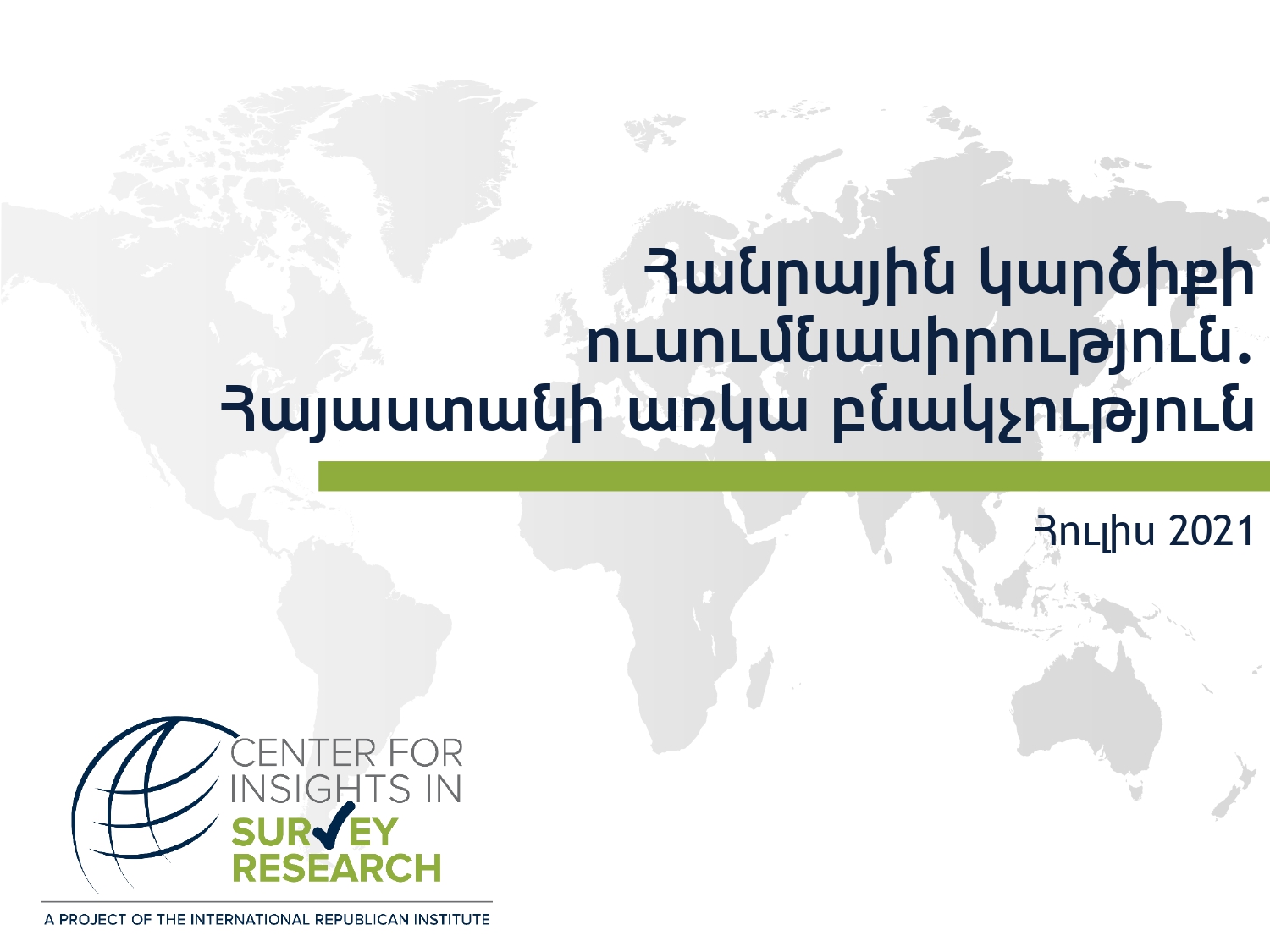The International Republican Institute (IRI) has published another study to find out the attitude of Armenians towards the coronavirus and their post-election expectations.
Survey data were collected in Armenia from July 21 to July 30, 2021, by telephone interviews, random digit dialing (RDD). 1,504 RA adult citizens took part in the survey.
In your opinion, is Armenia moving in the right or wrong direction in general? This question is usually always asked and allows us to understand the dynamics of assessments. 45% said the direction was wrong and 31% said it was right. Armenians were of the same opinion half a year ago.
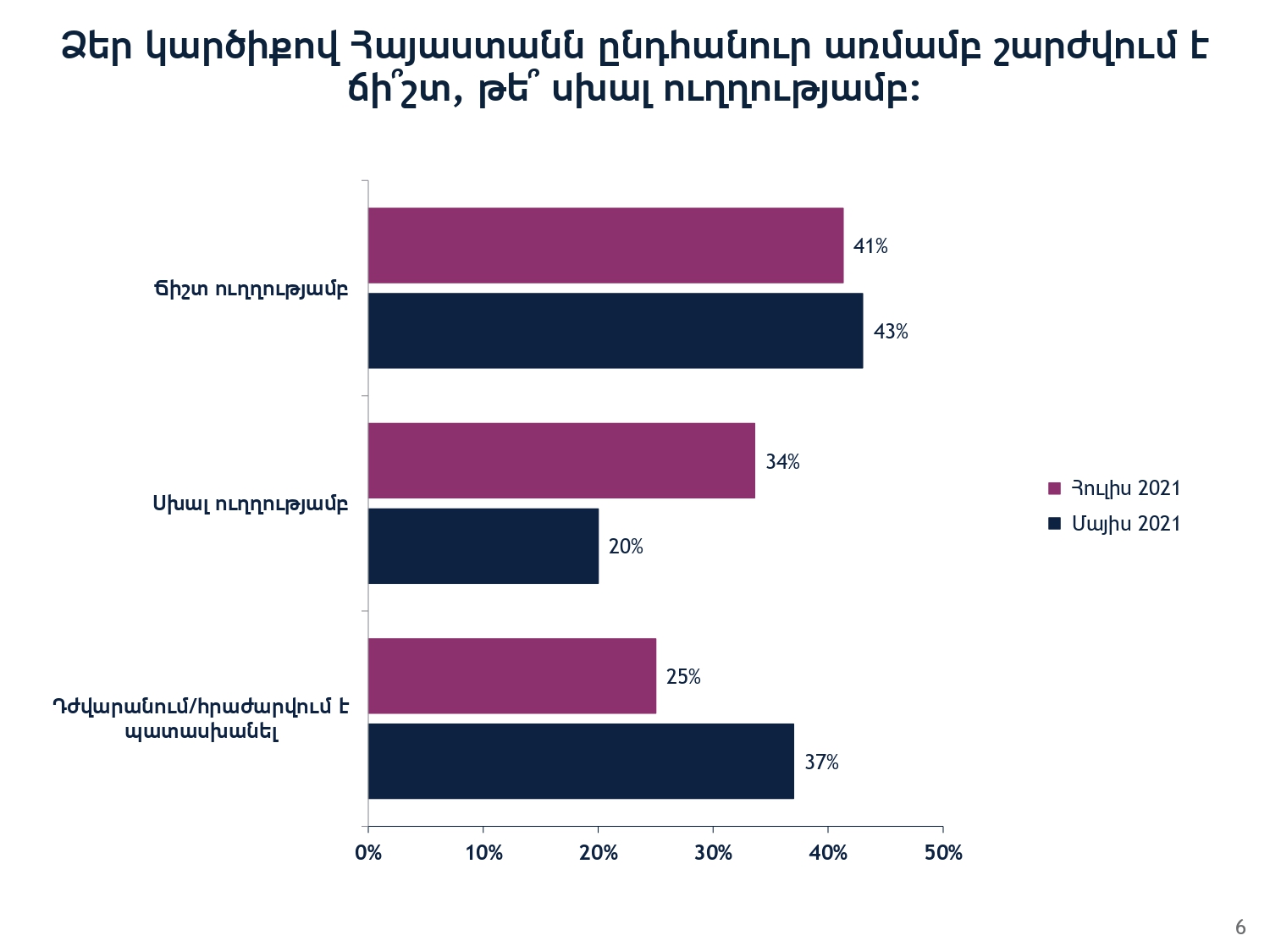
Interestingly, the residents of Yerevan are more inclined to consider the direction wrong than the residents of the regions.
Surveys show that feelings of insecurity, anxiety and fear for the future have increased. There is less belief in any improvement.
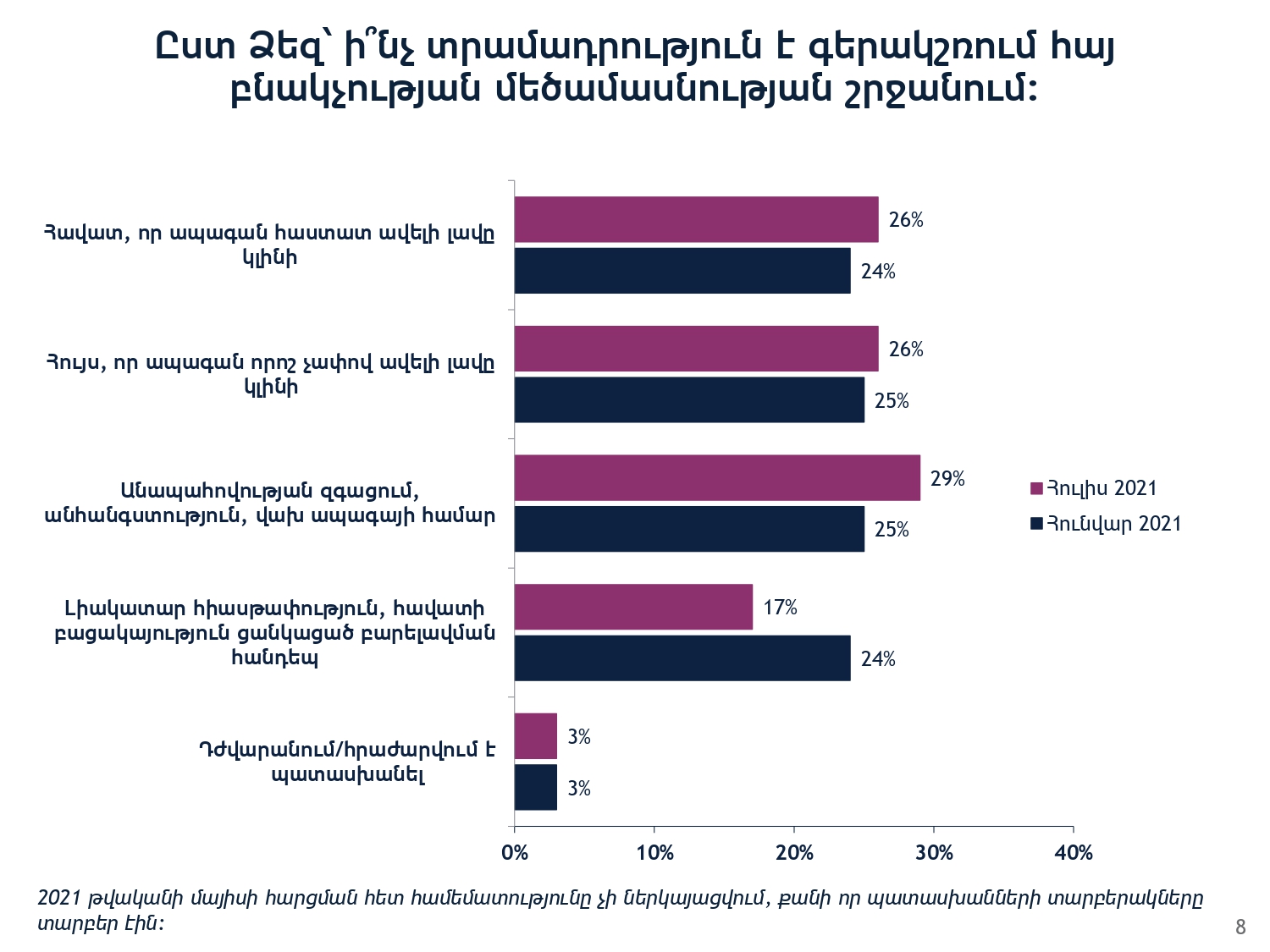
The procedure for the parliamentary elections and the right to vote were assessed as normal.
How did the candidates or campaign organizations contact you during the election campaign? The majority (45%) answered this question, by no means, 30% received information from leaflets, 22% from community meetings, and 21% from social media.
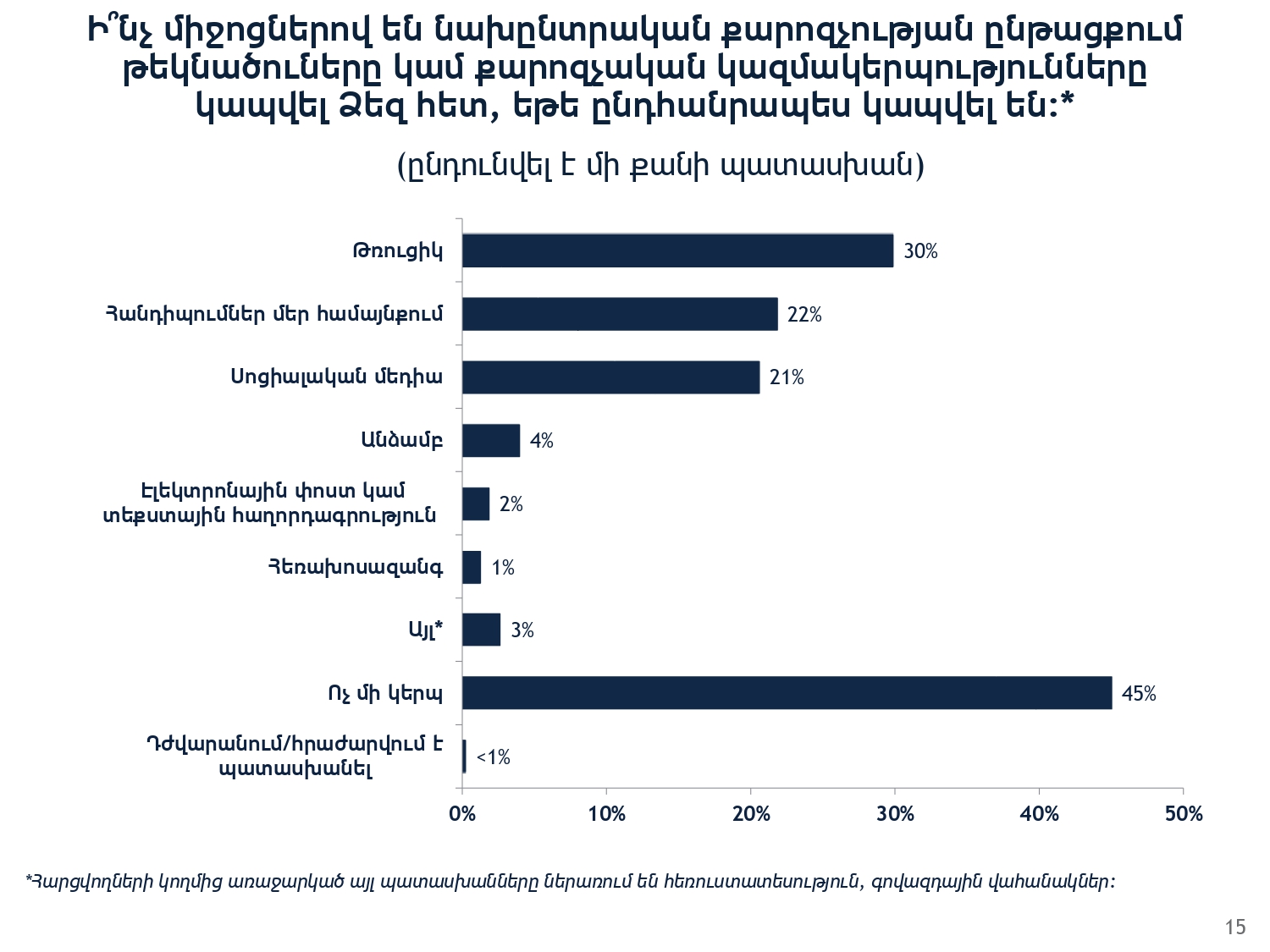
Much of the IRI survey is about COVID-19. Also about trust.
Will you be vaccinated against coronavirus? The answers to this question are dominated by the answers “definitely not” (30%), “most likely yes” (27%) and “most likely no” (19%). “Definitely yes” answered 13%, which means twice as many people refuse to be vaccinated.
And only 8% said they had already been vaccinated.
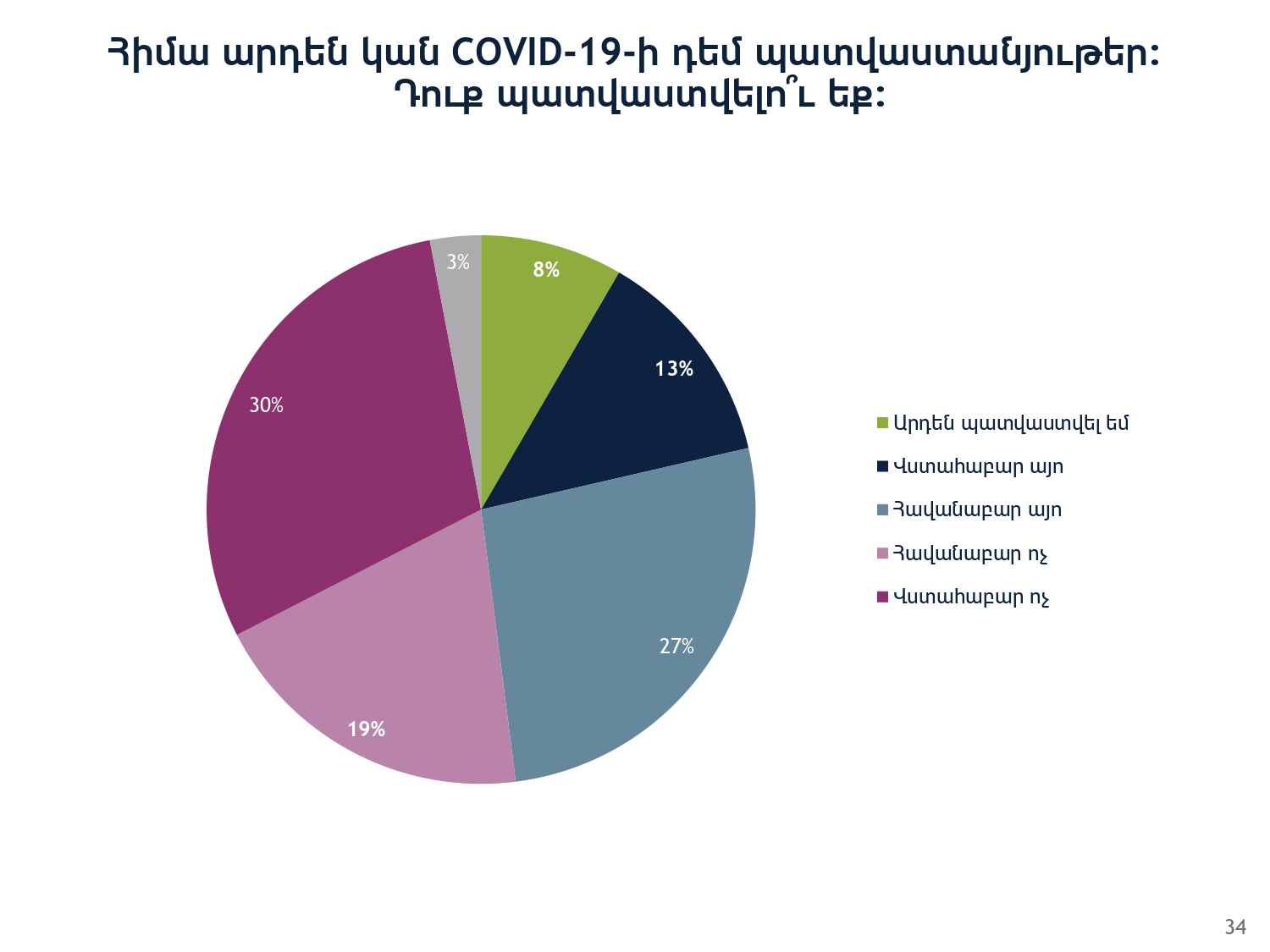
The main reasons for not getting vaccinated are anxiety about side effects (35%), feeling that it is not needed (16%), wanting to know more about the effectiveness of vaccines (15%) and certainty that they do not protect against infection (10%).
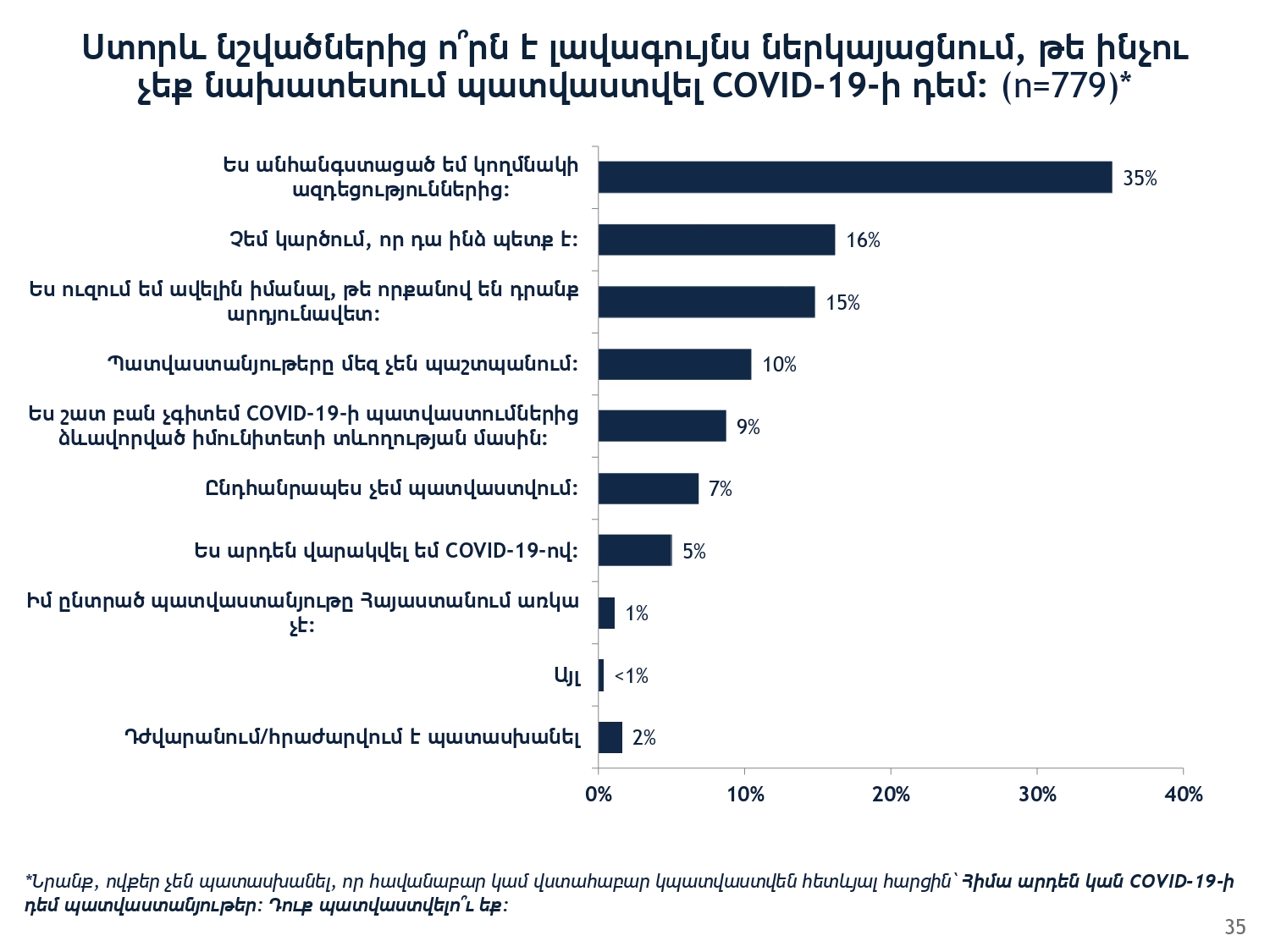
Interestingly, respondents who tend not to get vaccinated are rarely willing to change their minds and eventually get vaccinated. Attending sporting events, visiting restaurants, or additional information from health care providers, or even being forced to travel abroad, are not as effective as money. 80% of Armenians said they would be vaccinated if they received monetary compensation from the government.
The list of the most reliable sources of information about the coronavirus is mainly the TV companies: Public (23%), Shant (11%), Armenia (9%), Azatutyun (5%). 2% of respondents also mentioned Facebook as a media outlet.
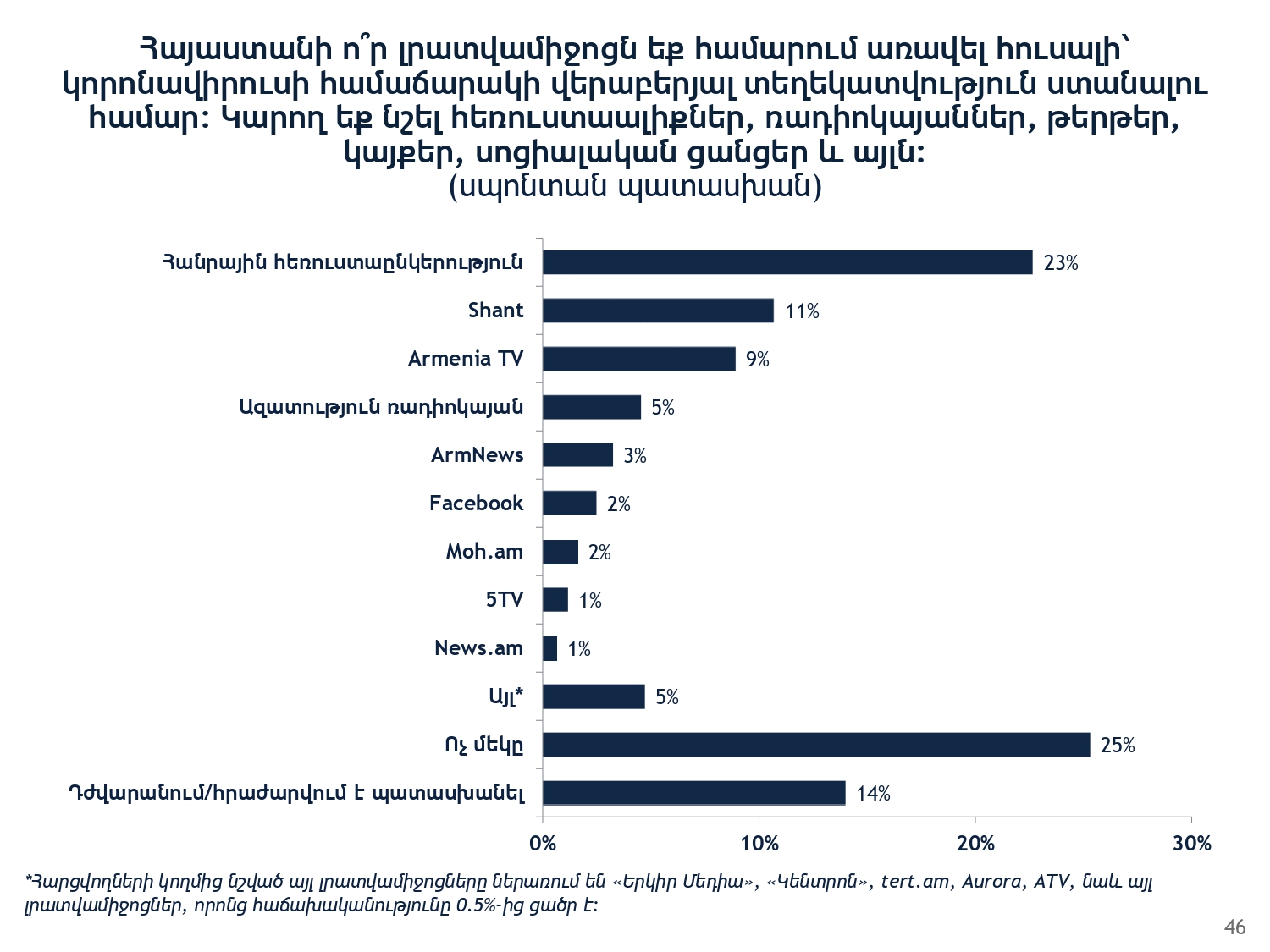
25% of respondents encounter misleading or false information about coronavirus every day in the media and on social networks, 14% several times a week. 21% said they had never encountered any.
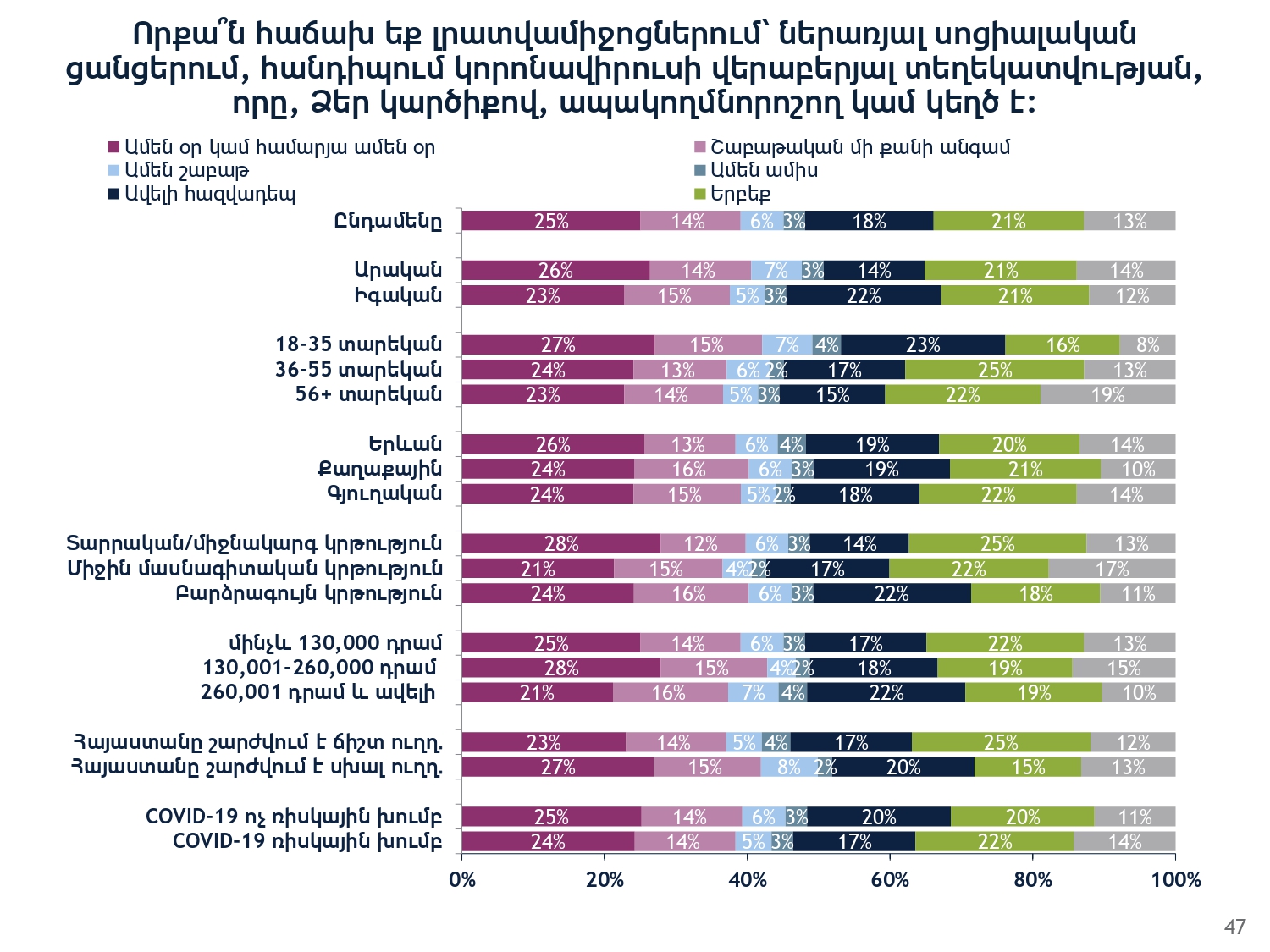
The most trusted sources of information relating to the epidemic and vaccines are personal physicians (40%), family and friends (37%). It is noteworthy that 19% fully trust the church as well, and to a lesser extent (13%) the Armenian (national) media.
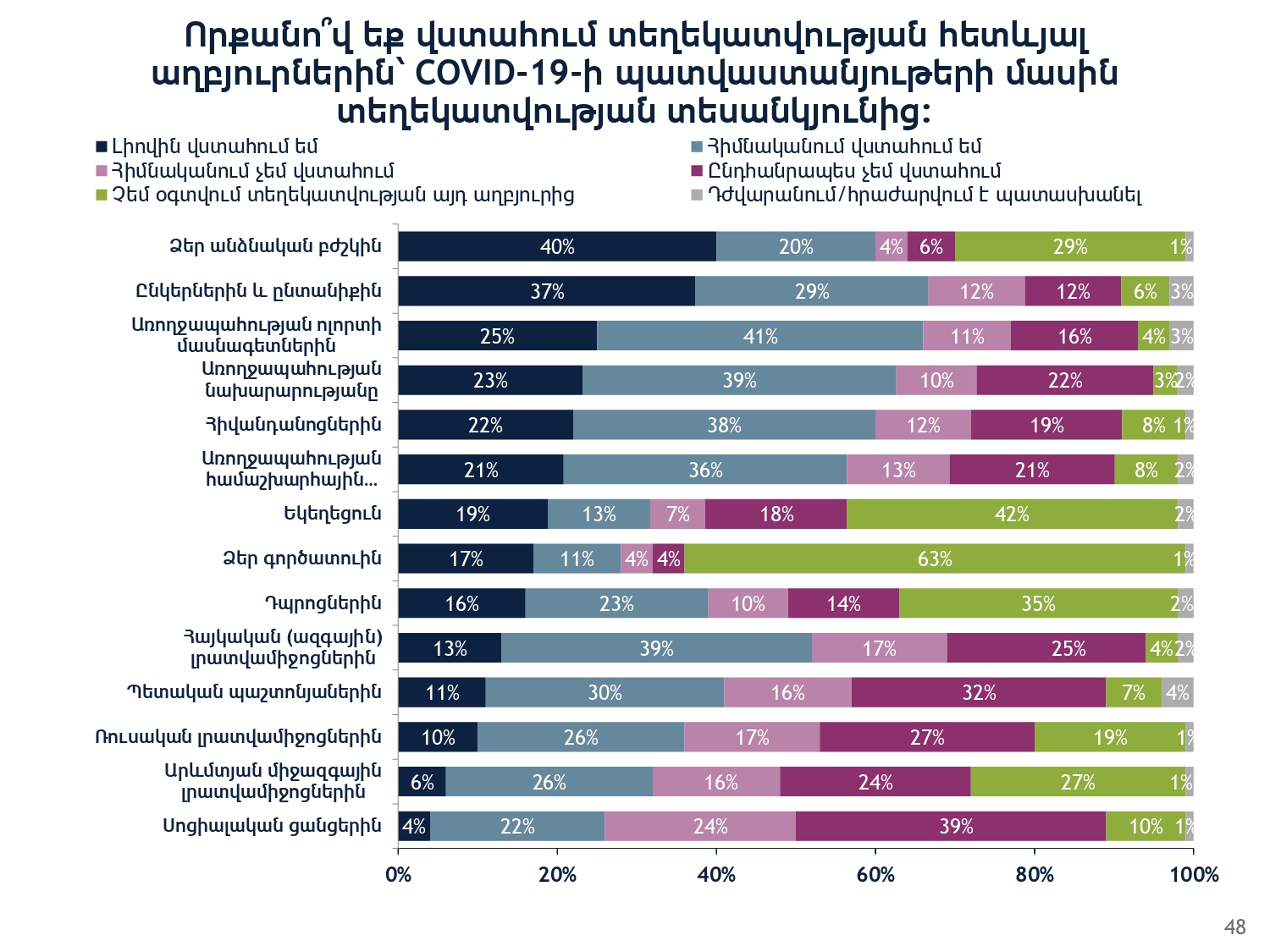
Moreover, Yerevan respondents trust local media less than residents of the regions. There are more adults over the age of 56 among those who do express trust. As well as those without higher education.
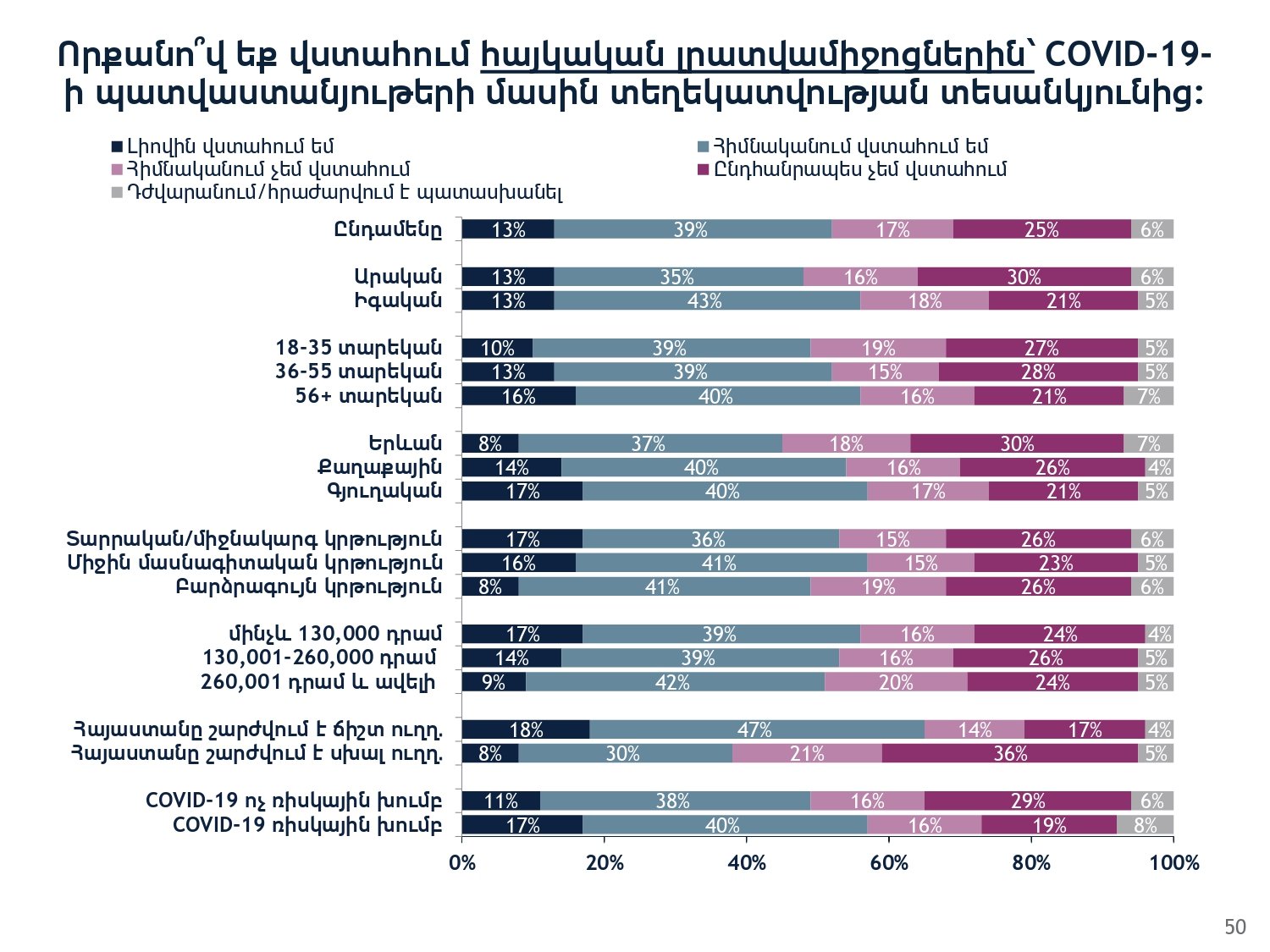
The majority do not trust what the government officials say about the epidemic and vaccines. 32% said they did not trust at all.
Surveys show that there has been a serious review of the role of social media. There are more who do not trust the information about coronavirus and vaccines than those who consider it credible.
39% do not trust at all, and only 4% fully trust.
Nune Hakhverdyan

